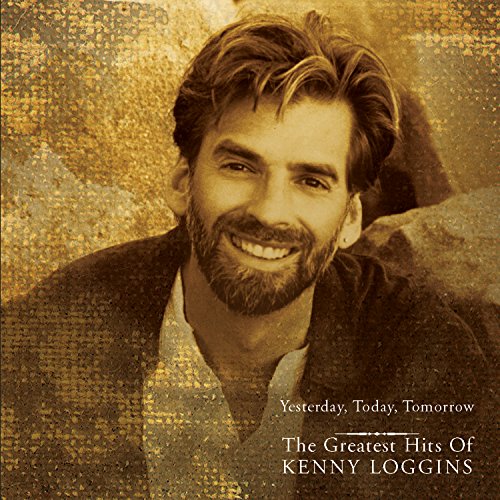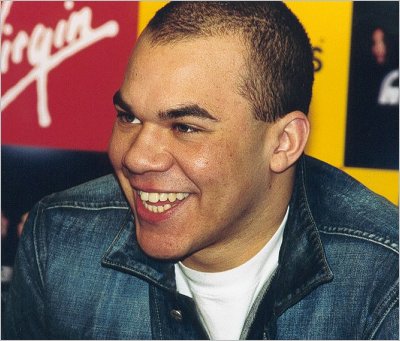
Boyzone' are a popular Irish boy band of the 1990s. They had major success in the UK and Ireland and differing levels of success in parts of Europe and Asia with six #1 hit singles in the UK. By 2007 they had sold over 15 million records.
Boyzone was put together in 1993 by Louis Walsh who is also known for managing Johnny Logan and Westlife. Before even recording any material they made a now infamous appearance on RTÉ's The Late Late Show. Their first album Said and Done was released in 1995 and the following two studio albums in 1996 and 1998. Three compilation albums have been released, the latest being Key to My Life: The Collection in early 2006.
Band history
Boyzone was formed in 1993 by former manager Louis Walsh through an advertisement of a vocal group audition. About 300 auditionees tried it out and initially, six number comprised the group. They made their first appearance (only a day after being formed) on Ireland's top-rated Late Late Show dancing to a backing track.
The band played through 1993 and in the early parts of 1994 all over Ireland. They played in Pubs when Polygram signed them up and released the cover version of the Detroit Spinners hit "Working My Way Back To You", featuring Mikey Graham and Stephen Gately on lead vocals. It reached No. 3 in the Irish Charts.
The Osmonds hit Love me for a Reason paved the way for them to break the British Charts. It hit No. 2 in Britain and has since started their hits. "Love me for a Reason" was included in their 1995 hit debut album "Said and Done." The album reached the No. 1 spot in both UK and Ireland.
The band's second album, "A Different Beat" released in 1996, contained their first UK number one single, "Words." The album also contained the hit singles A Different Beat, Isn't it a Wonder and Picture of You, the OST of Mr. Bean, The Ultimate Disaster Movie. Ronan Keating won the Ivor Novello award for songwriting in 1997 for Picture of you.
Their third studio album Where We Belong, released in 1998 showcased boyzone's writing abilities. The album further widened their fan base due to the more matured songs. It contained the hit singles "All that I Need" (which stayed for 6 weeks in the MTV Asia charts), "Baby Can I Hold You", and "No Matter What". "No Matter What" was their best selling single and was voted Song of the Year.
Boyzone has been commemorated by the London's Rock Circus by inviting them to place their handprints on the "Walls of Hands" beside the likes of Eric Clapton and Michael Jackson. Also, Wax figures of the boyz were made beside U2 in Dublin.
Boyzone have been active supporters of Charity works. They appeared on the Childliners record The Gift Of Christmas alongside acts such as Backstreet Boys, MN8, E.Y.C., Sean Maguire, Deuce, Ultimate Kaos, Let Loose, East 17, Peter Andre, Michelle Gayle, Dannii Minogue and many more.
In 1999, their greatest hits compilation "By Request" was released and was followed by another tour. Also, during this time, due to the threat of a tabloid expose, Stephen Gately confessed that he was gay and was in love with the ex-Caught in the Act member Eloy de Jong. It was also during this year when Ronan Keating released his first solo single, When You Say nothing at all. They have all decided to take some time off the band to pursue solo projects.
The group performed together for the last time in January 2000. In the seven years that they were together (1993 - 2000), they have been dubbed the "most promising band of the year" by the British magazine Smash Hits in 1995. What initially started as a performance that followed their Late, Late Show appearance, Boyzone has gone on to sell more than 10 million copies. All sixteen of their singles reached the top five and they became the first Irish act to have four number one hits in the United Kingdom. Their 1998 tour of Ireland shattered all sales records when 35,000 tickets were sold out in four hours.
In 2001 Boyzone member Shane Lynch blamed Ronan Keating for the cancellation of the boy band's planned farewell tour."Ronan strung everyone along," said Shane
In March 2007 Ronan Keating dismissed rumours of a reunion with the other members of pop group Boyzone. According to Digital Spy, Keating said that he is currently working on a new solo album and had not signed a reunion deal. The singer said: "All that speculation in the papers that we've done a deal for millions is absolute rubbish." "I'm making a new record and I can't let anything get in the way of that," he said.However, Keating did not rule out a reunion for Boyzone in the future, saying: "If we got the right deal over a short period and if it fits in between now and my next album coming out, I'd love to do it." "I'd love to do it for the other guys as well because I know that I've been the one holding it up."
All five members of Boyzone made a comeback appearance as part of Children In Need on BBC1 in the UK on 16 November 2007, with an Irish and UK tour in June 2008. The band sold 200,000 tickets for the tour within 3 hours and sold 20,000 tickets for their concert in the RDS Dublin. Ronan assured Boyzone fans that the group are taking their comeback tour plans "very seriously".The five-piece announced last week that they will be going on tour next summer 2008, and the boys are now visiting the gym on a daily basis to get fit.Ronan told the Daily Star: "We've been taking it easy on the Guinness and been out for dinners and just a couple of drinks. We're taking the tour plans very seriously." "We're all on diets and we've been training in the gym every day. I'm probably the fittest now that I've ever been. I think we all look better now than before.""We each went to see Take That on tour at different times and started talking to each other again, but Take That were the icing on the cake that made us decide now was the time to reform."We're very aware of how good Take That are, and know we have to be on a par with them. There won't be a flat, boring stage. We're all dancing again and learning different things we've never done before to rival their pole dancing and stuff."
Band Members * Ronan Keating
* Stephen Gately
* Mikey Graham
* Shane Lynch
* Keith Duffy
Listen to their songs.





























